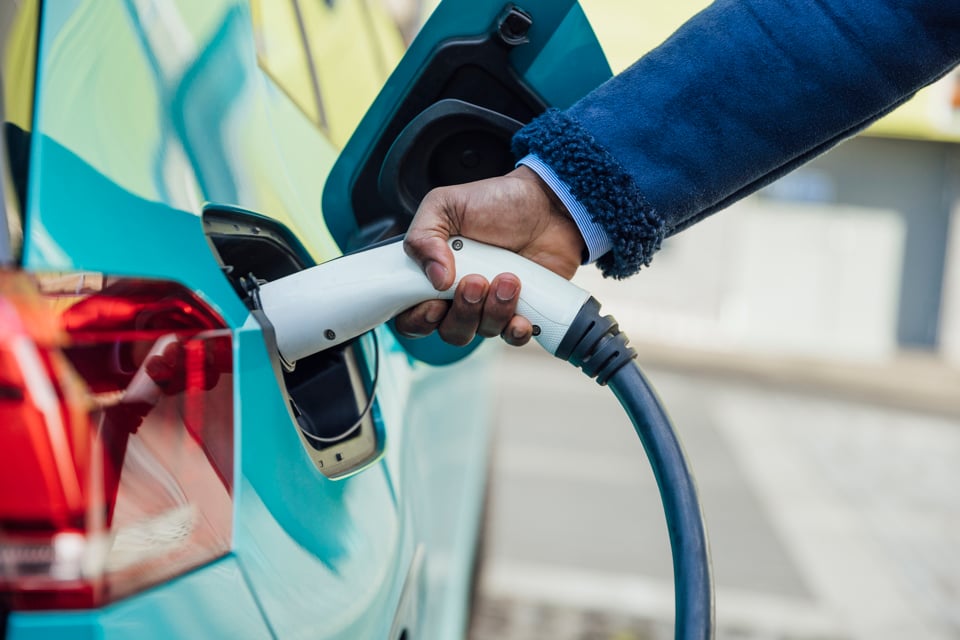The Liberal Democrats has vowed to reinstate the plug-in car grant and the ban the sale of new internal combustion engine (ICE) cars and vans from 2030.
Publishing its manifesto ahead of the General Election on July 4, the Lib Dems said that Conservative ministers had “badly neglected” transport infrastructure.
“Their chaotic U-turns have seriously undermined the rail industry, electric vehicle (EV) manufacturing and regional development,” it added.
“They have failed to rollout electric charging points at anything like the speed necessary, and they have left local bus routes in rapid decline. Roads are in a terrible state, with potholes everywhere.”
The party has pledged to make it “cheaper and easier” for drivers to switch to EVs by rolling out more charging points, including residential on-street points and ultra-fast chargers at service stations.
In addition, it says it will support new chargers with an upgraded National Grid and a step-change in local grid capacity, cut VAT on public charging to 5% and require all charge points to be accessible with a bank card. The Government has already legislated to make all DC chargers take contactless payment.
It also wants to reintroduce the plug-in car grant, which was axed by the Government in 2022, and restore a ban on the sale of new petrol and diesel cars and vans from 2030.
The Conservative Government announced it was delaying the ban on the sale of new ICE vehicles from 2030 until 2035, last year.
Other transport policies from the Lib Dems, include protecting motorists from “unfair” insurance and petrol prices – it doesn’t say how it would do this – freezing rail fares and simplifying ticketing on public transport to ensure regular users are paying “fair and affordable” prices.
Furthermore, it says that it wants to give more of the roads’ budget to local councils to maintain existing roads, pavements and cycleways, including repairing potholes and taking steps to reduce demand for flying.
It says it would do the latter by reforming the taxation of international flights to focus on those who fly the most, while reducing costs for ordinary households who take one or two international return flights per year.
It would also introduce a new super tax on private jet flights, and remove VAT exemptions for private, first-class and business-class flights, as well as banning short domestic flights where a direct rail option taking less than 2.5 hours is available for the same journey, unless planes are alternative-fuelled.
The part says it is committed to cutting greenhouse gas emissions to net zero by 2045 at the latest.
“We will take the bold, urgent action needed to tackle climate change, cut energy bills and create hundreds of thousands of secure, well-paid new jobs,” it said.
“Together with innovative British businesses, we will make the UK the world leader in the clean technologies of the future. We will help households meet the cost of the transition to net zero and make sure everyone benefits from it, leaving no one behind.”
RAC head of policy, Simon Williams, welcomed promises of more money for local road maintenance, ensuring fuel prices are fair and additional support for the transition to EVs.
However, he said: “Without clear spending allocations it’s impossible to know just how much of this would actually result in any meaningful improvements for drivers.
“More than half (55%) of drivers tell us the high upfront cost of an electric vehicle is what prevents them from opting for one in the first place.”
He said that the pledge to reinstate the plug-in car grant is very positive, as is a commitment to install more chargers on residential streets and more ultra-fast chargers at service stations.
He added: “The promise to end the VAT charging disparity is particularly welcome, as currently those charging at home pay just 5% in stark contrast to those using public chargers who are hit with a 20% rate.
Matt Finch, UK policy manager at Transport and Environment, also welcomed the Lib Dems pledges. “These are some solid, well thought through commitments from the Liberal Democrats,” he said.
“They have recognised that aviation is the problem child of transport decarbonisation, and that a lot more policies are needed to address the problem.
“The commitments to address the woeful under-taxation of both private jets is a bold step forward and will help contribute to strengthening the idea that polluters need to pay.”
He continued: “The Lib Dems have also seen that an upgraded national electricity grid comes hand in hand with improving the nation's charging infrastructure for electric vehicles.
“Ensuring that both are in place will help families feel more comfortable in accessing this essential technology that will help eliminate emissions from road transport.”
However, he said: “There is a worrying lack of acknowledgement here of the need to decarbonise shipping and trucks.
“These areas have been consistently neglected by previous Governments, and, right now, it's looking like the Lib Dems would carry on this trend too.”
The Road Haulage Association (RHA) was disappointed that the Lib Dems manifesto transport plan focussed almost entirely on people rather than goods.
“Their freight strategy can be summarised in one bullet point, 'a national freight strategy to move as much freight as possible from road to rail, supported by a freight growth target and the electrification of freight routes',” it said.
“We believe this is too simple an answer for an increasingly complicated question.”
Some 89% of all freight is moved by road and the RHA argues that the country is a long way off a significant shift to rail without the required infrastructure to make this happen.
“Even if significant modal shift is achieved, the road freight industry will still need to provide final mile services,” it added. “Practical proposals rooted in reality must be brought forward.”
“The commitment to investing in green infrastructure is hopefully indication on that measure but more detail is needed.”






















Lloydy1980 - 11/06/2024 13:06
The ICE ban needs removing not reducing!!!!!!!!!!!!!!!